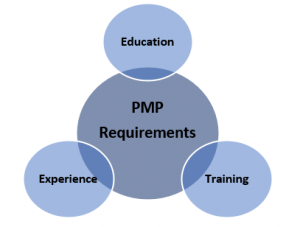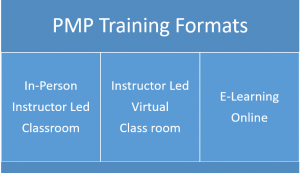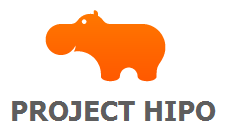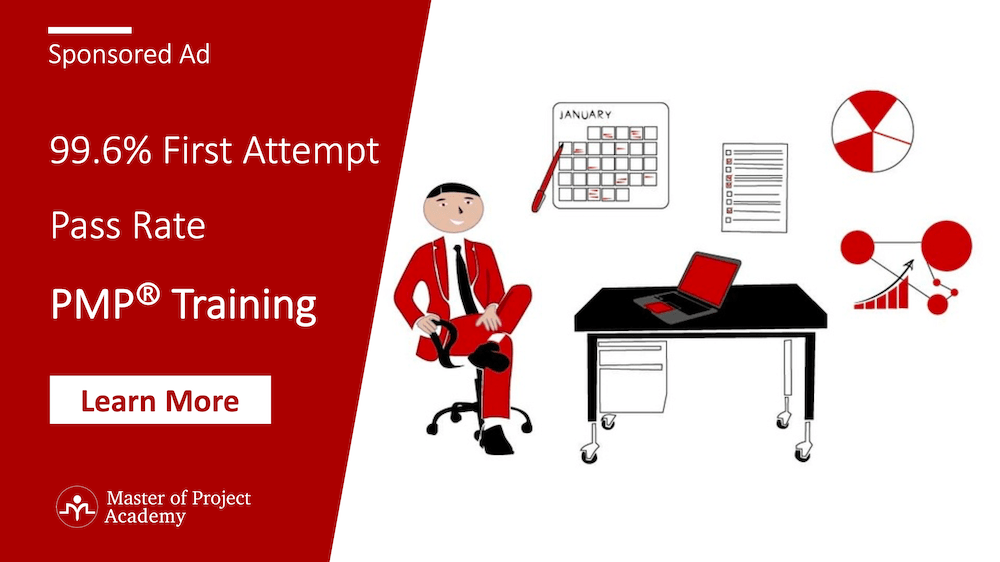Are you looking for information about PMP preparation to get PMP certification? If yes, this is the article you must be interested to read. As in this article, we will share with you the PMP preparation steps to get PMP certification. PMP certification has global recognition. In addition to this, PMP demonstrates the experience, education, skill, and competency required to lead and direct projects. The certification is evidence of your knowledge of the project management framework.
Furthermore, PMP validates your understanding of the overall process framework. There is no second thought to the fact that PMP brings exposure to the best practices, latest trends in project management, and the opportunity to learn tricks and techniques. Hence most of the project management aspirants set their goal to acquire PMP certification in their earliest career path as soon as they fulfill the PMP criteria. If you are one of them, you are welcome to the club.
What Is PMP Certification?
Before moving on the PMP preparation let’s have a look at PMP certification. PMP certification is not confined to any industry. Professionals across the globe and working in any industry can obtain PMP certification. Project management professionals are of vital importance in every industry. The global demand for PMP professionals is increasing in each industry across the globe. According to the survey conducted by various agencies, the demand for practitioners of project management is growing and a lot many positions will be available in the upcoming years.
Furthermore, companies recruit people from various cultural backgrounds to manage diversity within geographical and cultural contexts. So the need for project managers with a standardized set of skills increases. The professionals are expected to manage a variety of challenging projects. The nature of these projects will include technology advancement, business process re-engineering, system reorganization, compliance with international standards, innovation, and so on.
So being PMP certified will definitely give advantage to the professionals as PMP advance and endorse your methodical approach towards handling the end to end projects. Many companies make it an essential requirement that the applicants must possess PMP certification. For that reason, they also get added advantages in hiring as well as compensation packages. If you have PMP certification, you can expect up to 20% increase in your salary as compared to non-certified project managers. You can read more in our PMP salary and Project Manager Salary posts.
But nothing comes out of free! If you need to acquire PMP certification, PMP preparation is the only way to achieve your goal.

PMP Preparation Steps
In this section, we will give you an overview of PMP preparation. The first step of PMP preparation is to assess your PMP certification suitability. If PMP certification is the one that you are looking for, you must know whether you qualify for the PMP certification requirements. Once you assess yourself in regards to the PMP qualification criteria, you should start your PMP preparation by fulfilling the PMP requirements.
Fulfilling the requirements is not enough for PMP preparation. You should also practice hard and ensure your PMP preparation helps you pass your PMP exam. Once you fulfill the requirements, you can apply for the PMP exam. Your PMP application may be randomly selected by PMI for audit. In such a case you need to provide PMI with the evidence documentation of your education, experience, and training. Once your application is approved by PMI you can schedule your exam at the nearest Pearson VUE test center. Finally, as the last step of PMP preparation, you will sit in the PMP exam to qualify to get the PMP credentials.
These five steps of PMP preparation are:
- Is PMP certification for you?
- Qualify for PMP certification requirements
- Get ready for the PMP exam
- Apply for PMP
- Sit for the PMP exam
PMP Preparation Step #1 – Is PMP certification for you?
Obviously, if you are interested to pursue your career in the field of project management, a project management certification will be your best shot. Now the question comes: “Which certification is better for you?”. There are various project management certifications available across the globe. Some of these certifications have scope within specific countries. Some of these certifications are for entry-level aspirants. Or some of these are specific to certain methodologies. However, PMP is the most reputable project management certification around the globe.
Prince2
For instance, PRINCE2 could be seen as a competitor of Project Management Professional (PMP). Usually, in the US and American countries, they prefer PMP. On the other hand, PRINCE2 is more popular in the UK, Australia, and Europe. There is no strong preference for PMP or PRINCE2 in Asian, African, and Middle Eastern countries.
There are two major certifications namely PRINCE2 Foundation and PRINCE2 Practitioner. They can assist you to quickly develop your capabilities and skills across a number of key business disciplines. As these certifications are also related to project management, these will also help you set your skills in terms of effectiveness and efficiency. Their main focus is on managing and delivering projects from start (initiation) to finish (delivery).
Any of these certifications do not stop you from getting both of them. Rather PRINCE2 and PMP acknowledge each other. The main focus is the region for both of them. Even an individual may opt for both of them to expand the outreach. The basic difference between these two exam formats is that while PMP tests your knowledge of project management, PRINCE2 will examine the methodologies of project management.
In other words, we can refer PRINCE2 as a “methodology” and PMP as a “standard” – which can be used alongside each other.
Certified Scrum Master (CSM)
Another famous certification related to project management is the Certified Scrum Master (CSM). This certification is offered by Scrum Alliance. CSM is geared towards the project managers who lead teams using Scrum. Scrum is an Agile framework that is used to implement projects with complex and dynamic nature.
A project manager concentrates on projects and managing associated timelines, on the other hand, a Scrum master guides and leads his/her team. Being a CSM shows that you have mastered team roles, events, and artifacts. The CSM is an entry-level certification that indicates a working knowledge of Scrum methods and principles.
If you’re currently working in Agile project management, then the CSM will likely be the most ideal for you. However, if you’re looking to strengthen your interest and role as a project manager, then start your PMP preparation because this is the best choice for you.
Certified Associate in Project Management (CAPM)
Considering the importance and need for project management skills at all levels, PMI also offers the Certified Associate in Project Management (CAPM) certification. This is an associate-level project management certification. CAPM is considered as an entry-level option for project managers and the first step for professionals looking forward to acquiring PMP. This is also helpful for PMP preparation as it helps to fulfill PMP exam criteria especially in regards to the experience. Because PMP requires the experience of 3 years for the graduates and 5 years for the associate level degree holders.
CAPM certification gives the professionals the skill sets and it helps them to get acquainted with the best practices in project management. It also provides the skills and knowledge to manage the projects in all the project phases that include planning, executing, monitoring, controlling. So you can get a solid foundation for your PMP preparation if you start with CAPM certification, but only if you do not fulfill the PMP exam criteria.
Agile Certified Practitioner (PMI-ACP)
PMI’s Agile Certified Practitioner (PMI-ACP) is another project management-related credential. It formally recognizes your knowledge of Agile principles and Agile techniques’ skills. PMI-ACP spans many approaches to agile such as Scrum, Kanban, Lean, extreme programming (XP), and test-driven development (TDD). This certification is ideal for people who work with Agile teams or whose companies are opting for the Agile approach.
PMP certification will take you to the highest level of project management to help understand project management from different perspectives from a higher level to a detailed level. Whereas PMI-ACP can be termed as a subset of project management which is known for being flexible and always ready to respond to unpredictability.
PMP Preparation Step #2 – Qualify for PMP Certification Requirements
If you are interested in PMP preparation, then, first of all, you should know the prerequisites of the PMP exam so that you can start your PMP preparation process. PMI has set requirements to sit in the PMP exam. These PMP requirements cover various aspects. The aspirants need to qualify in each of these aspects. These include education, experience, and training. These criteria are vital for PMP preparation and they are used to assess the knowledge, skills, experience, and approach that are required to manage the projects.

The PMP Certification Requirements
The relation of these requirements is depicted below. So there are two cases. Each case depends on your education level.
Case-1:
Case-2:

PMP Certification Requirements: Education
Education plays a significant role in PMP preparation. The education level also plays a vital role as it drives the experience requirement. If you have a bachelor’s degree it compensates for the experience requirement by two years, i.e. from 5 years to 3 years. But if you hold a high school diploma or associate’s degree or global equivalent then to appear in the PMP exam you have a 5-years of working experience.
You will claim your education while applying for the PMP exam. Usually, the aspirants already have obtained the degree so the evidence is already present at this stage. If one does not meet the minimum degree requirement then they must complete their education to complete their PMP preparation for the exam.
Why we have referred to the term evidence is important here as when you submit your PMP exam application, there is a likelihood that your application is randomly selected as per the PMI process of screening the PMP exam applications. So if your application is selected for the audit, you are required to respond to the audit for clearance. So for education, the copy of your degree will serve as the evidence at that time.
PMP Certification Requirements: Experience
Experience is another requirement vital aspect of PMP preparation. As shared earlier, this requirement is subject to your education level. The PMP requirement regarding the experience is as below:

- If you have a bachelor’s degree, the required experience is 3 years (36 months). To fulfill the 3 years of requirement, you should have work experience of 4,500 hours. So you can say that 3 years with around 1,500 hours each year, which you can interpret as 125 work hours per month. This breakup is mentioned here just for your high-level understanding as your monthly work hours may vary in actual.

- If you have a high school diploma or associate’s degree or global equivalent the required experience is 5 years (60 months). To fulfill the 5 years of requirement, you should have work experience of 7,500 hours. So you can say that 5 years with around 1,500 hours each year, which you can interpret as 125 work hours per month. This breakup is mentioned here just for your high-level understanding, as your monthly work hours may vary in real-life.
PMP Certification Requirements: Training
PMP training is another PMP certification requirement hence it is a vital part of PMP preparation. It is a must for the candidate to earn 35 contact hours of PMP training. There is no impact or change on the number of contact hours with respect to your education as was in the case of the experience requirement. In all the cases you need to earn 35 contact hours to complete your PMP preparation.
PMP Preparation Step #3 – Get Ready for the PMP Exam
As you have gone through the PMP requirements now you get the idea where you stand with respect to the PMP criteria. Now is the time to take action and really start your PMP preparation by training for the PMP exam. There are many training providers that offer PMP training programs. In addition to the training options, there are other practice materials available for your PMP preparation. However, these practice materials will not compensate for the PMP training requirement. So the additional practice material is good to have and they can help you with your PMP preparation.
Choose your training program
Fulfilling 35 hours of contact hours seems like an easy PMP preparation step right? But be careful, on the first look, it seems that 35 contact hours is a very simple requirement for PMP preparation. But this is a crucial aspect of the PMP preparation You need to choose among many training providers who offer PMP training programs. So you should be able to choose the one that is feasible for you.
Since the PMP exam is not an easy exam that everyone who attempts will qualify. Hence if the candidates are not well prepared for the PMP exam, there is a high chance to fail. Therefore one must be well prepared for it. The training sets the foundation for PMP preparation. Therefore, you should choose the one that can help you get your mission accomplished. Generally, there are various aspects you should consider to filter the most feasible option. This may include:
- Is training comprehensive and covers all the aspects of the PMBok?
- Does the training satisfy the PMP exam criteria of 35 PDUs?
- Whether I should opt for classroom training, virtual online, or e-learning training format? – Learn more at the PMP certification online post.
- What is the study material I will get with the training?
- What is the duration of the training?
- Does the training provide me with the flexibility of schedule and location?
- Are there any practice materials like mock-up tests and quizzes available with the training?
- Are there any testimonials of the training provider?
- What is the success rate of the training provider?
- What is the reputation of the training provider?
- Is the training cost feasible for me? – See PMP Certification Cost
- Will I get a better return on investment?
- Will I get dedicated support from the training provider?
Training Formats
One important aspect you must consider while choosing the training program is the training format. The training providers offer various training formats that are helpful for the candidates. So the candidates can get more options to choose from. Obviously each training format has its own pros and cons. So you must choose the training format that suits your PMP preparation. Choosing a training format is the key to decide the training program for your PMP exam.
Candidates choose the training format as per their feasibility. You can look for the following training formats and make a choice according to your priorities to complete your PMP preparation. These formats include:

Instructor-Led Classroom Training
In this format for PMP preparation, training providers offer instructor-led training within their premises. These training programs are generally of a duration of 4 days. That satisfies 35 contact hours requirement set by PMI to sit in the PMP exam. These training programs are scheduled by the training providers. Generally, training providers publish their calendars on their websites. So the candidates can find and select the training with respect to dates and locations. If you opt for this training for your PMP preparation, you will have to follow the schedule and be on the premises for the training sessions. Furthermore, you are confined to the training programs within your local vicinity that is within your reach.
As project managers usually have tight schedules and it is not easy for them to commit and follow such schedules, therefore there is a chance to miss some of the sessions in case of urgency. Furthermore, they have to travel to the training premises. So one may get late for the sessions if they could not leave the office for the session well in time. Once you miss the class you will have to find ways to cover up the gap with your colleagues or through the provided material.
Virtual Classroom Training
Another training format option for PMP preparation is virtual classroom training. In this format, you get instructor-led training. However, the main difference between the virtual classroom and the on-premises training is that in the second one the training is conducted in a virtual environment. These are computer-based classes that are led by the instructor in the real-time model.
So you do not have to travel for training premises. All you need is a computer or PDAs with internet access. With this PMP preparation format, you get flexibility in terms of location and travel. You can just join the class from any place. However, following the timing is important.
One of the main advantages of such PMP preparation formats is that you are not confined to your local vicinity. You can access the class online irrespective of the teacher location so you get more options for this PMP preparation format.
E-learning Online
E-learning training format is another option for PMP preparation that gives a lot of flexibility to the candidates. Generally, you get duration based access to the extensive material produced by the training providers. This PMP preparation option makes you independent of location or time. Also, it provides expansion in the outreach of the training providers. Hence you get many options to choose from.
In this PMP preparation format, you are not bound to follow any specific date and any specific location. So you get the flexibility to learn at your own pace. In addition to this, the most important factor is cost-effectiveness. These PMP preparation programs generally have much more affordable prices as compared to that of the other training formats. With all these flexibility and cost-effective advantages, e-learning PMP preparation formats are getting popular across the globe.

Follow additional PMP resources if you need
Once you get the PMP training, you still require to practice and reinforce what you have learned. Now is the time to assess your knowledge with respect to the PMP exam. This is your study period after your initial training. Now you should start another phase of your PMP preparation by practicing through the materials you have been provided during the training. You can also refer to your own notes if you have prepared any.
PMI Resources
PMBoK should be your main road map as it covers all the aspects of the PMP exam. You can also become a PMI member. This will give you free access to standards, guides, and other valuable material relevant to project management. This also includes the Project Management Body of Knowledge (PMBOK). The entire content is available on PMI’s website pmi.org.
Flashcards
In addition to the aforementioned, you can use the flashcard technique to build your own flashcards for your PMP preparation. So you can keep them in your pocket and review them within any shorter time slot available. Many training providers also offer such products. Candidates can buy these additional products and get an advantage during their PMP preparation. Many well-known education providers like RMC, Andy Crow, and Master of Project Academy have flashcards which are available in different qualities and numbers.
The PMP preparation programs provide you with the study material that may include quizzes, games, practice tests, and simulations. In this way, you can assess your readiness for the exam, identify the PMP preparation gaps, and cover them with the revisions. However, you can find a variety of quizzes, practice exams, and exam simulations. You can dive deep into the test environment and mock practice.
Exam Simulators
Exam simulators are another option you can get from the market. These PMP exam simulators give you the feeler of the real PMP exam. Furthermore, when you practice as a full dress rehearsal, you are able to assess your readiness. This helps you assess the different aspects of the PMP exam. You will be able to assess your efficiency, time management, tendency to respond to all the questions. And above all the accuracy of the attempted questions.
Once you identify your weak areas, as another phase for your PMP preparation, you definitely need to strengthen your knowledge in these areas. In this regard, you can go through your notes and learn the basic concepts. Then try to map these concepts with specific real situations. This will ensure that you are fully equipped to attempt such situation based questions in your PMP exam.
Many training providers also offer exam simulators as a separate product. For instance, RMC offers 90-day access to their PM Exam Simulator that includes 1600 plus sample questions. Whereas, Master of Project Academy provides a PMP Exam Simulator that consists of 7 simulation exams including 1400 PMP online exam questions for your PMP preparation. They offer a lifetime access plan or a month.

PMP Preparation Step #4 – Apply for PMP
Once you completed the training phase of your PMP preparation and also satisfied the other PMP requirements, then you can apply for PMP certification. For this sake, you need to fill your PMP online application form. You will provide information pertinent to your education, experience, and training.
Fill Your PMP Exam Application
PMP Certification Application – Education
You will mention your education level along with the relevant information in the application. At this time you should have your degree for this sake.
PMP Certification Application -Training
You will provide the details of your project management training that granted you 35 contact hours. You should have the certification of completion with 35 contact hours for this sake.
PMP Certification Application – Experience
As already shared, your experience requirement is subject to your education level. If you are a graduate your application should reflect the experience of 4,500 hours. In case you have an associate degree, then your application should reflect the experience of 7,500 hours.
You do not really need to be a project manager during this time period. You may be working on the projects in any capacity and role. So you can fill in the details of the projects with respect to your role you performed within a specific project. For this matter, you need to do some homework. You can maintain a list of projects you have worked during this time period. And for each project, you should mention the start date and the end date. Most important is the effort you have spent on a specific project with respect to the project phases.
The application does not require you to work on a specific project from start to end as your application will be subject to your engagement within the projects. You may join a long term project after the initiation phase. Likewise, there may be cases when you started working on a project, and the project was halted during the execution phase due to environmental factors. In some cases, you were part of the full life cycle of the project. So your application should be filled keeping all the scenarios and facts in mind. So your work history is properly maintained. Another important point is to keep the contact information of your supervisor and the company you worked with during these projects.

Submit your PMP Exam Application
When you are done will your application, then as another step for your PMP preparation, you should submit it. When you submit it, PMI will review your application. PMI randomly selects the PMP applications for audit. It means your application also has a chance of selection for audit. Or PMI will approve your application provided your application fulfills all the requirements. The successful evaluation of the PMP application form makes the applicant eligible to sit in the PMP certification online examination.
Your application approval means you will submit the PMP exam fee, then for one of the final steps of your PMP preparation, you can schedule and sit for the PMP exam.
PMP Application Audit
PMI can audit your experience, educational background, or PMP training. If PMI selects your application for the audit, you will require to respond to the audit. In this regard, you will collect the evidence of the information you provided in the PMP application.
You should read carefully the audit content and send the required documents to PMI to pass the audit.
Audit Response
For education, a copy of your degree will suffice. Likewise, for training, a copy of your certificate will be sufficient. Whereas for the experience, you will require sign off from relevant supervisors for each of the projects you enlisted in the application. Your supervisors will have to verify and sign off on each form you have sent to them. In this regard, you will get the print out of the PDF documents from your audit package. And send those documents to your supervisors. After the signing off they have to send the forms back to you. They do not have to send the verified forms directly to PMI.
After you receive all the forms form your supervisors you will include them in your audit response bundle. In addition to these forms, you need to include a copy of your degree and training certificate as well.
Once the bundle is ready you need to send the bundle to PMI on their specified address. PMI will update you with the status of the audit. Once you clear the audit, you are ready to proceed further for your PMP Exam as a final step for PMP preparation.
PMP Preparation Step #5 – Sit for the PMP Exam
Now it is time for the last step of your PMP preparation: PMP exam. On your PMP exam day, you need to be relaxed. You have already done your PMP preparation to qualify for the PMP certification. You must take good sleep the night before the test. Remember the phrase: Rest is Best for Test. Also, you need to ensure that you arrive 15 minutes before your scheduled appointment. In the Pearson VUE test center you will need the basic formalities to sign in. You will present the required identification and provide your PMI ID number. You should have your identification documents with you. These may include government-issued identification. for example, a valid driver’s license, valid passport, or valid national identification card.
PMP exam is a computer-based online exam of 4 hours of duration. You have to attempt 200 Multiple Choice Questions. PMP online exam has questions with four options, of which you need to pick one correct answer. There is no negative marking but the positive responses count towards the passing score. Read the questions carefully, eliminate the incorrect answers, and choose the most appropriate answer.
You can take breaks but the timer will not stop so if you plan to have short breaks during the examination you must keep in mind that it will reduce the time to attempt the questions.
Make the best use of your time. if you complete your test well before the time of completion, you may utilize this time to review your answers. You can submit your test if you finish it before the time of completion. Otherwise, at the time of completion, the test will automatically close. You can immediately view your PMP exam score. Provided you have passed the PMP exam you get the “Congratulations” message on the screen.
What should I do after I get PMP?
Now you completed your PMP preparation and got the advantage of the PMP credentials. You may get advancement within your current organization or you can also get more opportunities where the recruiters are looking for PMP certification holders.
When you pass your PMP exam, it means you get PMI approval to use the PMP credential for the next 3 years. Once you got the PMP, you must earn 60 PMP PDU credits every three years to retain your certificate, so do not forget to earn and report PMP PDU hours. PMI maintains all your submitted PDUs within the current 3 years cycle. Once the cycle is complete you will ensure that you have earned the 60 PDUs and submit the fee to renew your PMP credentials.
PMP Preparation Summary
In this article, we shared with you a 5-step guide for your PMP preparation. The article takes your step by step from choosing the ideal project management certification until the day you appear in the PMP exam. We also highlighted the importance of PMP training dor your PMP preparation and shared with you the basic criteria to assess the PMP training providers. Furthermore, we shared additional material that you can use for your PMP preparation. You can practice with the quizzes, practice tests to assess your standing and work on your strengths and weaknesses.
The article also highlights how you can fill your PMP application. Additionally, we mentioned the necessary steps for audit response if PMI randomly selects your application for the audit. Then we shared tips for the time to sit for the PMP Exam and get your PMP certification. After you qualify for the PMP certification, you will maintain the 3 years cycle of PMP renewal as per PMI requirement.
Best of luck with your PMP preparation!





